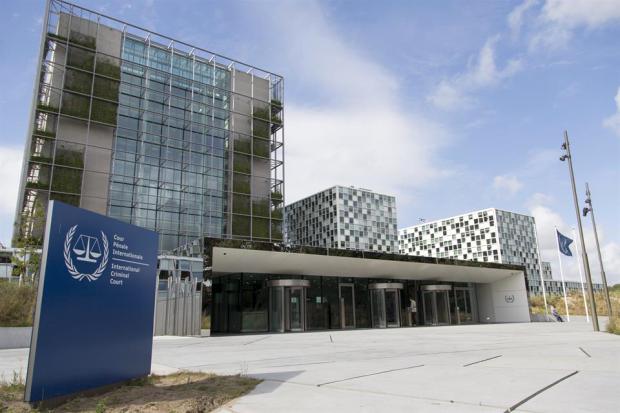Arresting ICC prosecutor could get Duterte in more legal trouble, says lawyer

The International Criminal Court in The Hague, The Netherlands (Photo from the ICC website)
CEBU CITY — President Rodrigo Duterte cannot just order the arrest of a prosecutor of the International Criminal Court (ICC) without repercussions.
Human rights lawyer Ruben Carranza, a former commissioner of the Presidential Commission on Good Government, warned that arresting the ICC prosecutor would be another legal liability for the President.
Carranza, who is now based in New York, said that one-fourth of the cases of conviction in the ICC were due to obstruction of justice.
“But it is the first case I know that the prosecutor herself is the one being threatened,” he said in a meeting with the Cebu Lawyers for Human Rights on Sunday.
“[If the prosecutor comes and gets arrested,] that’s not only unlawful but that is also a violation of the treaty [Rome Statute],” he added. “Other countries that are parties to the treaty will very likely not only condemn it but come to the assistance of the ICC prosecutor who may face that predicament.”
The President earlier announced that the Philippines was withdrawing from the Rome Statute, a treaty adopted in 1998 that led to the creation of the ICC after the ICC started its “preliminary examination” of the bloody campaign against illegal drugs.
Although the withdrawal would take effect a year after the country issued the notice, the President said the withdrawal was effective immediately, claiming that there was fraud committed in the process of making the Philippines sign the agreement.
Carranza stressed that the withdrawal would take effect only after a year based on the Rome Statute provisions.
During the period, he added, the ICC prosecutor could still open an investigation about the alleged extrajudicial killings in the Philippines until March 2019, without the question of jurisdiction.
Carranza said the ICC prosecutor might not have to physically go to the President to open an investigation.
The prosecutor, he added, could use the documentation from media coverage to establish patterns in the killings under the drug war.
He said “high officials” who incited, commanded or requested the killing of the drug suspects were the focus of the investigations of the ICC prosecutor rather than the very persons who committed the killings.
The President’s pronouncements that he would not punish police officers who killed drug suspects could be used as an indication that he was an indirect co-perpetrator in the killings, Carranza added.
According to him, a sitting president could not be charged under the Constitution but such a privilege is not granted in the ICC.
“It is not unprecedented that a sitting president or head of state was brought before the ICC for trial,” Carranza said.
He said senators should also challenge the President’s move to pull out of the ICC.
Since it was the Senate that ratified the Philippines participation in the ICC, he added, the upper chamber must also review the withdrawal. /atm